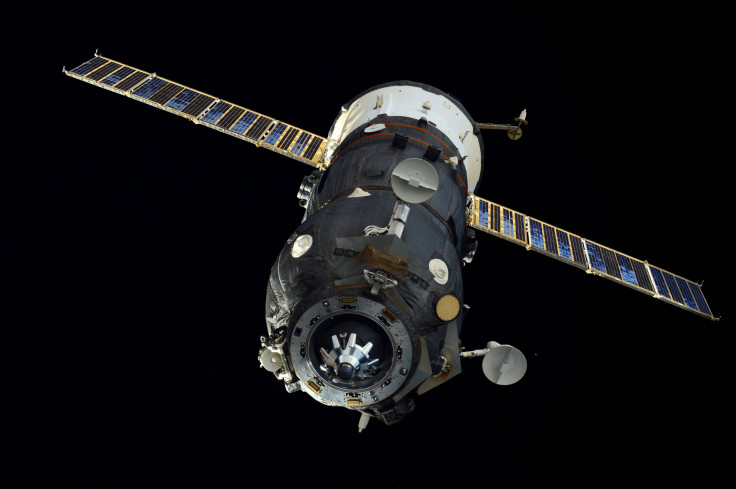International Space Station Crew's Return Delayed After Russian Supply Ship Failure

Following the unsuccessful attempt by a Russian cargo spacecraft to carry supplies to the International Space Station (ISS), NASA and its global partners decided to delay the return of three astronauts from the orbiting laboratory until early June, the space agency announced Tuesday. The exact date for the crew's return is expected to be announced in the coming weeks.
The three astronauts, who include NASA's Terry Virts, the European Space Agency (ESA) astronaut Samantha Cristoforetti and Russian cosmonaut Anton Shkaplerov, were scheduled to return to Earth this week, but the trio will now leave the space station sometime next month. The astronauts had arrived at the ISS on Nov. 24, 2014, as a part of the Expedition 43, according to ESA.
NASA astronaut Scott Kelly and Russian cosmonauts Mikhail Kornienko and Gennady Padalka will remain aboard the space station to begin Expedition 44, which will include Kjell Lindgren of NASA, Oleg Kononenko of the Russian Federal Space Agency (Roscosmos) and Kimiya Yui of the Japan Aerospace Exploration Agency. The Russian Soyuz spacecraft, carrying the three astronauts, is scheduled to launch in late July from the Baikonur Cosmodrome in Kazakhstan, according to NASA.
The latest postponement occurred after Roscosmos’ Progress 59 cargo ship failed to arrive at the space station last week, and later burnt up while re-entering the Earth’s atmosphere. Russian authorities are expected to provide an update about the Progress 59 investigation on May 22.
“The incident has put further launches to the Station on hold pending the results of an investigation into the failure,” ESA said in a statement. “The six astronauts living and working on the orbital complex have enough supplies to last for many weeks regardless of the loss, so their wellbeing is unaffected by the change of schedule.”
The next Russian cargo spacecraft, Progress 60, will be launched in early July to deliver several tons of food, fuel and supplies, while a SpaceX resupply mission is scheduled for June 19, NASA said.
© Copyright IBTimes 2025. All rights reserved.






















